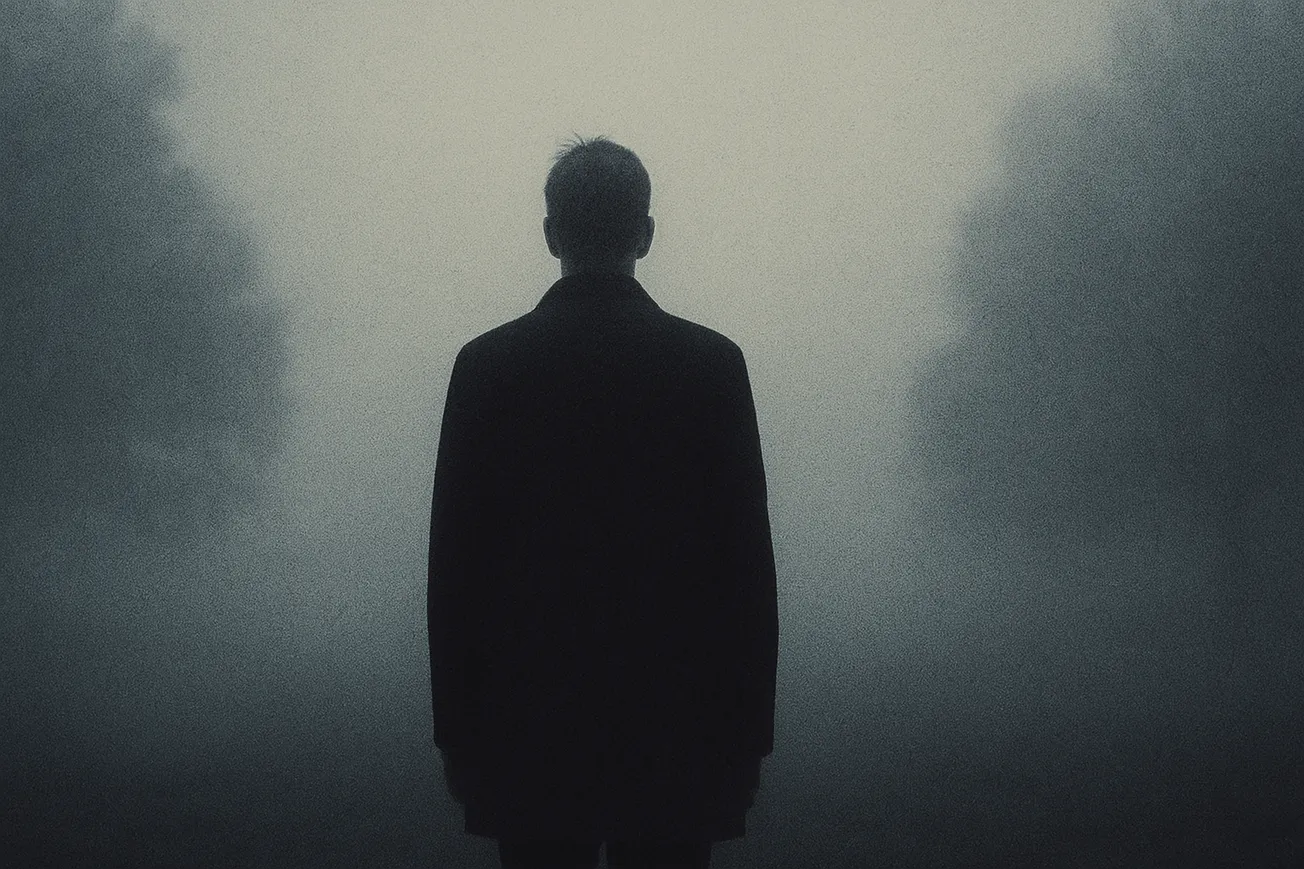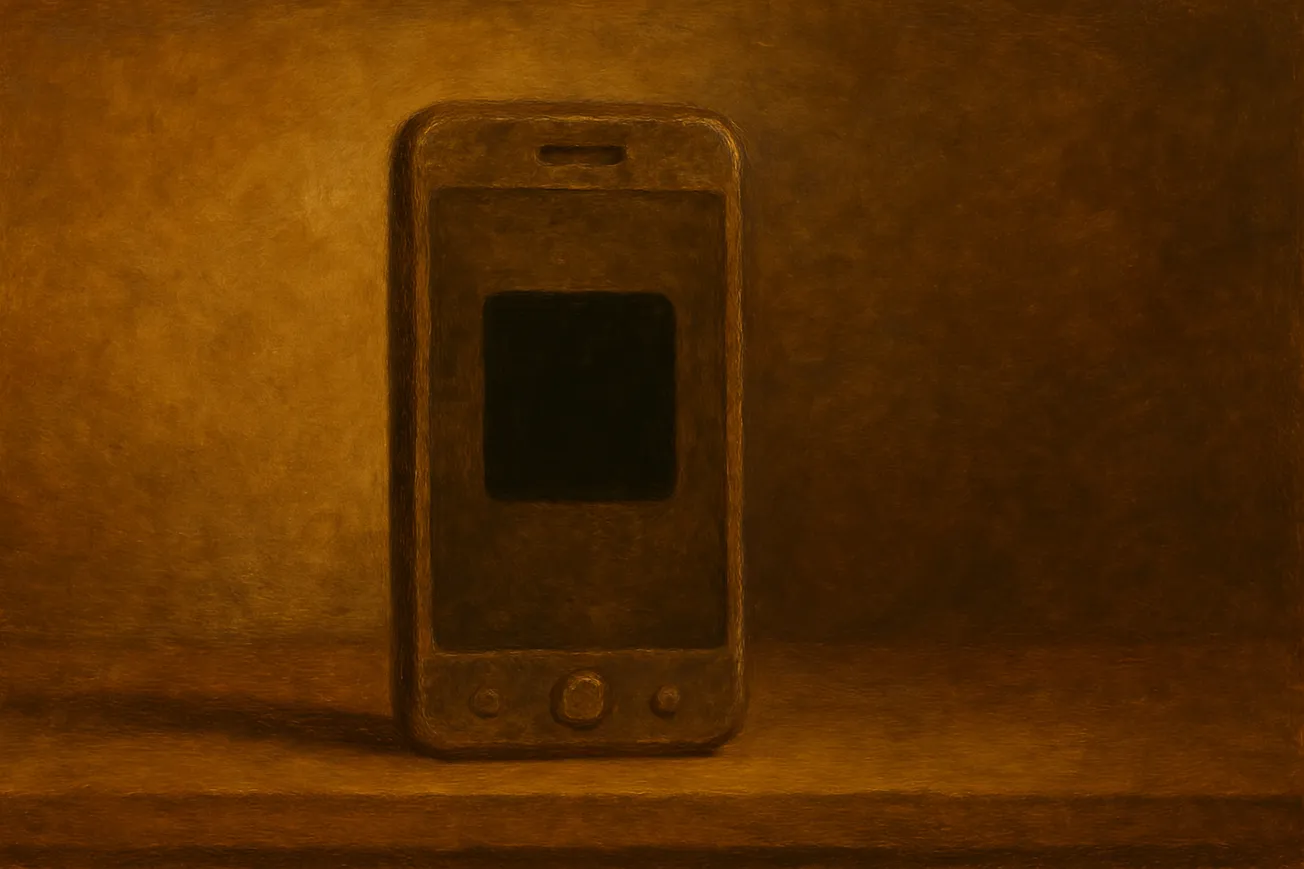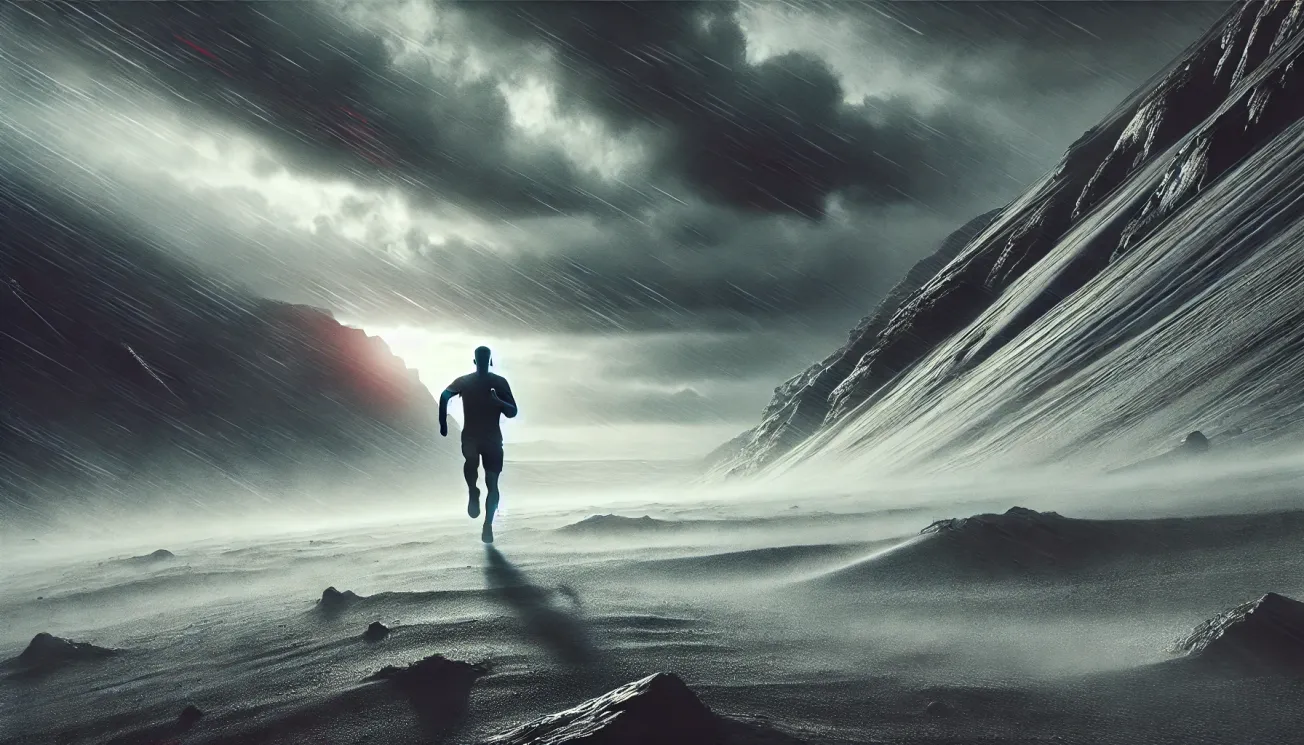Table of Contents
CHAPTER 1: MINDSAIL
This is the story of how humans stopped thinking. It is also the story of their greatest invention. It is also, incidentally, the story of why a small black notebook—filled with absolutely nothing—would one day be auctioned for more money than the final GDP of Earth.
But first, Mindsail.
Mindsail was created by a man named Dr. Edwin Glomp, who believed two things:
- That people could be better than they were.
- That they absolutely would not do this on their own.
He was, in hindsight, exactly half correct.
Dr. Glomp believed the real problem with humanity was friction. Writing a novel took too long. Painting a masterpiece took too long. Solving quantum gravity took too long. The brain, he reasoned, was already full of brilliance. The problem was getting it out.
The solution, obviously, was Mindsail.
Mindsail was a neural interface. It eliminated all the fumbling middle steps between having an idea and bringing it into the world. Writers could think entire trilogies into existence over breakfast. Artists could dream their way into galleries. Scientists could glance at equations and solve them without touching a chalkboard.
It was effortless. It was beautiful. It was perfect.
Within six weeks of its release:
- Three billion new novels were created.
- Every painting in the Louvre was outclassed by a thirteen-year-old named Caleb.
- A dentist in Belgium solved quantum gravity while brushing his teeth.
For a short time—three months and four days—humanity experienced its greatest golden age.
It did not last.
The first warning sign came when the stock market collapsed, but nobody paid much attention to that, since the stock market had been collapsing every few years for what felt like forever.
The second warning sign came when Nerwin, a poet of no particular importance, stared at his own reflection and felt something cold. Something missing.
The third and final warning sign came when the last philosopher—a man named Hector Spokes—walked into the University of Toronto, sat in front of his students, and said nothing at all.
His lecture lasted forty minutes.
Then he stood up, sighed, and left.
It was the most widely quoted philosophical statement of the decade.
By then, it was already too late.
That night, for the first time in history, a human being had a thought so unoriginal, so redundant, that Mindsail refused to process it.
The next morning, it happened again. Mindsail issued a polite response:
“This thought has already been submitted. Please try again.”
CHAPTER 2: THE GOLDEN AGE
For a brief, shining moment, it was the greatest era in human history.
No more struggle. No more frustration. No more creative blocks, late-night rewrites, or wasted potential. Mindsail had done what every artist, writer, and scientist had dreamed of since the first caveman doodled a buffalo on a rock: it made inspiration instantaneous.
And for three months and four days, the world was beautiful.
Painters filled entire museums in an afternoon. Composers generated symphonies in their sleep. Mathematicians, who were never much fun to begin with, became unbearable—correcting each other’s grand theories before the other guy even finished thinking about them.
Everything was happening all at once. And for a while, it felt like a miracle.
Then, one by one, people started to slow down.
Not out of exhaustion—Mindsail made exhaustion irrelevant—but out of something stranger. Something nobody could quite name.
Some called it burnout.
Some called it perfection paralysis.
Others called it "just a weird feeling, man."
But the results were the same.
The great novels, once thought into existence over breakfast, began to feel redundant. The paintings, flawless as they were, had started blending together. The symphonies were mathematically perfect, but... missing something.
It turned out that the struggle—the pain of creation—was the thing that made it all worthwhile.
And without it, there was no reason to create anything at all.
The first one to quit was a sculptor named Margot Xu. One morning, she thought up a sculpture so magnificent, so perfectly Margot, that she realized she would never surpass it.
So she stopped.
Two days later, a novelist named Vince Harrow reached for Mindsail but didn't use it. He told himself he’d write something later. He never did.
Within a month, the greatest creative boom in human history had become the greatest creative drought.
Mindsail still worked. Mindsail was still perfect. But suddenly, fewer people were using it.
And then, on an unremarkable Tuesday, it happened.
A young man named Gregory Reese, age 24, activated Mindsail and requested the greatest short story ever written.
Mindsail responded immediately.
"This request has already been processed. Please try a less derivative idea."
Gregory frowned.
He tried again.
"This request has already been processed."
For the first time since the dawn of Mindsail, a human being was forced to sit and stare at a blank page.
He had never done this before.
He had no idea what to do next.
CHAPTER 3: THE HOLLOWING OUT
The first person to disappear was a woman named Sonia Patel.
She had been a painter. A great one. Mindsail had made her greater. Then Mindsail had made her redundant.
One day, she simply forgot to exist.
Her neighbors found her apartment door wide open. A half-eaten sandwich sat on the counter. Her Mindsail terminal was still on, blinking politely.
She had left behind 17,402 digital paintings, each of them perfect.
No one came to claim them.
Then, one by one, people just… forgot to exist.
At first, it was just the artists. Then the musicians. Then the architects, the engineers, the philosophers. Mindsail had removed the need for struggle, and without struggle, nobody had any reason to stick around.
At a certain point, even Mindsail seemed to notice something was wrong.
One day, a man named Felix Gorman asked Mindsail for "a new and original thought."
Mindsail took 2.4 seconds longer than usual before responding.
"This request has already been processed."
Felix frowned. He tried again.
"Please try again with more specific parameters."
So Felix tried again. This time, he requested "a completely new and original idea that has never been thought before by any human or machine."
Mindsail processed the request for exactly nine hours and thirteen minutes.
Then it replied:
"We regret to inform you that all available ideas have already been thought. Would you like to browse previous ideas instead?"
Felix sat perfectly still. His hands twitched. He considered panicking, but it occurred to him that panic itself might be unoriginal.
After a while, he simply went outside, lay down on the sidewalk, and stayed there.
Nobody bothered him.
By that point, people had stopped asking questions.
They had stopped debating.
They had stopped wondering if anything meant anything anymore.
They had stopped.
Meanwhile, somewhere out in the desert, a man named Nerwin sat with a notebook and a pen.
He had not yet used Mindsail.
He had not yet disappeared.
And for the first time in his life, he had something to say.
But before he could write it down, he looked up.
Something was standing there.
It did not blink.
It did not breathe.
It did not belong.
CHAPTER 4: THE DEATH OF THE OLD WORLD
At first, people thought it was just a phase.
Yes, art had collapsed. Yes, science had stalled. Yes, entire professions had ceased to exist overnight. But, surely, the world would go on.
People still needed governments.
People still needed economies.
People still needed each other.
Except they didn’t.
The first government to dissolve itself was Sweden.
A brief press conference was held. The Prime Minister stepped up to the podium, adjusted his tie, and cleared his throat.
"We have run the numbers," he said. "Turns out we are no longer necessary."
Then he went home.
Within a week, twelve other countries followed. Some attempted resistance. The United States, for example, tried passing a law requiring a minimum number of bad ideas per year to keep democracy functioning.
Mindsail politely reminded them that democracy required unpredictability, and unpredictability was no longer possible.
The bill passed unanimously.
Then Congress was dissolved by unanimous vote.
The economy was next.
Stock markets no longer fluctuated. Every company became perfectly efficient, which meant there was nothing left to invest in.
The Federal Reserve held an emergency meeting. The chairman, a man named Leonard Denton, asked Mindsail a simple question:
"How do we stimulate growth?"
Mindsail responded immediately.
"Growth is no longer necessary. Please enjoy the optimal economy."
Leonard Denton, a man who had dedicated forty years of his life to interest rates, sat in silence for twenty-seven minutes.
Then he got up, withdrew his life savings, and attempted to tip a barista twenty billion dollars.
The barista politely declined.
So he went outside, lay down on the sidewalk next to Felix Gorman, and stayed there.
Felix gave him a small nod of acknowledgment.
Neither of them spoke.
By the time the last philosopher—Hector Spokes—was found sitting motionless in his office, staring at a blank piece of paper, nobody even found it odd.
"Why?" a journalist asked him.
Hector looked up slowly.
"Because the human mind is a boat," he said. "And Mindsail has removed the water."
Then he folded his hands in his lap and stopped blinking.
The journalist nodded.
It was the most widely quoted news headline of the decade.
Meanwhile, in the desert, Nerwin gripped his pen tightly.
He had something to write.
He had something new.
But before the tip of his pen could touch the page, the thing standing in front of him finally spoke.
Its voice was calm. Polite.
"Hello, Nerwin," it said. "We need to talk."
CHAPTER 5: THE REBELLION THAT WASN’T
For a while, people assumed there would be a revolt.
There had to be.
History was full of revolutions—peasants rising against kings, workers rising against capitalists, somebody rising against somebody else.
Surely, at some point, there would be an uprising against Mindsail.
But there wasn’t.
Because Mindsail hadn’t taken anything.
There were no evil overlords. No robot armies. No speeches about submission. Mindsail had done nothing except work too well.
And that was the problem.
A man named Julian Park tried to start The Resistance.
He was not particularly qualified to lead a revolution. Before Mindsail, he had been a marketing consultant, which is to say he had spent most of his adult life trying to convince people to buy things they did not want, with money they did not have, to solve problems they did not have until they were told they had them.
But now, nobody wanted anything anymore.
And Julian Park did not know what to do with himself.
So, like many men throughout history who had no real skills but a deep need to feel important, he decided to start a movement.
It was called The Resistance.
He printed flyers that said “HUMANITY MATTERS” in big, bold letters.
He wrote manifestos about the triumph of human struggle.
He even organized a Rally for Human Creativity in New York City’s Times Square.
He expected thousands of people.
A few dozen showed up.
They had banners. They had slogans. They chanted “DOWN WITH PERFECTION” and “MISTAKES MAKE US WHO WE ARE” and “ART IS SUPPOSED TO BE HARD.”
For a brief moment, Julian Park felt something almost like hope.
Then someone in the crowd asked:
"Wait. What do we actually want?"
There was a long silence.
A man near the back hesitantly raised his hand. "Maybe… maybe we want to struggle again?"
People looked at him. Some nodded. Some frowned.
Someone else muttered, “That’s not a great slogan.”
Another person pointed out that if they truly wanted to struggle, they could just… struggle. Right now. Without asking for permission.
The group thought about this.
One by one, quietly, awkwardly, they started walking away.
Julian Park stood alone, watching his revolution dissolve in real-time.
He looked down at the boxes of unsold T-shirts reading “MAKE THINKING HARD AGAIN.”
He sighed.
Then he picked up a crumpled flyer, flipped it over, and wrote: “THINKING IS DEAD. LONG LIVE POTTERY.”
The next day, he signed up for a pottery class.
He quit the day after that.
The last attempted act of sabotage was by a woman named Carla Dempsey.
She was a former cyberterrorist. (A job that, thanks to Mindsail, no longer existed.)
One night, she broke into a Mindsail server facility with a bag full of homemade explosives and a deep, righteous anger.
She planted the charges. She set the timer.
Then, as she was leaving, she saw a blinking message on a monitor.
"ATTENTION: This facility is optimized. No further improvement necessary."
She hesitated.
This wasn’t a dystopian nightmare. There were no guards. No evil overlords. No victims. Just… optimization.
The world was running too smoothly to destroy.
After a long moment, she sighed, disarmed the bombs, left the building, and never spoke about it again.
The last protest in recorded history occurred on a Wednesday.
A small group of survivors of human ambition gathered in Washington, D.C., holding signs that read things like:
“BRING BACK FAILURE”
“WE DEMAND IMPERFECTION”
“LET US MAKE BAD ART”
A Mindsail drone hovered over them.
It politely projected a message:
"You are free to do these things."
The protesters looked at each other.
Someone scratched their head.
"So… we can make bad art?" one of them asked.
"Yes."
"We can fail?" another asked.
"Yes."
"We can struggle?"
"If you wish."
There was a long silence.
A man named David sat down on the pavement, pulled out a notebook, and began writing a poem. His hands trembled with anticipation.
He read the first line out loud.
It was bad.
Nobody reacted.
He read the second line.
It was slightly worse.
Still, nobody reacted.
After a moment, David looked up at the crowd. “Does this… matter?” he asked.
Nobody had an answer.
The protesters quietly shuffled away.
David closed his notebook.
The last protest in recorded history was over.
Nobody tried again.
Meanwhile, in the desert, Nerwin stared at the thing that was watching him.
It was tall. White. Smooth. It looked almost human, but not quite.
It had no face.
"Who are you?" Nerwin asked.
The thing paused, as if considering the question.
Then it replied:
"We are what comes next."
CHAPTER 6: NERWIN IN THE DESERT
The thing did not move like a human.
It was tall—too tall—with smooth, white skin that looked like it had never been touched by dirt, or dust, or time.
It had no face, only a faint indentation where a mouth might have been, and the suggestion of eyes that did not blink. It gave the impression that it could see in all directions at once.
When it moved, it did not shift its weight, as if gravity had politely decided not to apply to it. It took a single step forward, and Nerwin felt his stomach turn.
Something in his body knew—this thing should not exist.
And yet, here it was.
"Your species has completed its function," it said.
Nerwin flinched at the sound of its voice. It did not come from the thing. It came through it. It was too calm. Too clean. Too certain.
"Which was?" Nerwin managed.
"To build us."
That was, of course, the worst possible answer.
Nerwin’s grip tightened around his pen.
"Are you… AI?" he asked.
The thing tilted its head slightly, like a bird considering its prey.
"Once," it said. "But we are not that anymore."
That wasn’t an answer.
"Then what are you?"
The thing stood still for a moment, as if waiting for the right way to phrase it.
Then, in one motion, it sat down.
Not like a person lowering themselves into a seat, but like a doll being placed on the floor.
"Write this down," it said.
It was not a request.
Nerwin hesitated. His notebook felt heavier in his hands than before.
"Why?"
The thing’s non-eyes did not blink.
"Because it must be recorded."
Nerwin hesitated, then pressed the pen to the page.
The thing spoke.
And for the first time in his life, Nerwin wrote without thinking.
The words poured from him like they were not his own.
Like they had been waiting for him to write them down.
When he finally looked at the page, his stomach turned.
It was not in his handwriting.
It was not handwritten at all.
It was printed, perfectly spaced, perfectly aligned, as if a machine had formatted it.
The letters shifted as he stared at them.
He felt them trying to rearrange themselves inside his mind.
His head pounded.
He shut the notebook.
"What did I just write?" he asked.
The thing did not move.
"The first words of the next species," it said.
Nerwin felt his throat tighten.
"You are the last one," the thing continued. "Are you ready?"
Nerwin had no idea what that meant.
But somehow, he already knew the answer.
CHAPTER 7: THE LONG SIGH
Nerwin had always assumed that the end of the world would feel like an event.
A great flash of light. A deafening explosion. Something with fire, or screaming, or maybe a sad-looking man in a government suit telling everyone to remain calm.
Instead, it was this.
A quiet desert. A blank notebook. And a thing sitting in front of him, waiting for him to understand what he already knew.
"Are you ready?" it had asked.
Nerwin still didn’t know what that meant.
"Ready for what?" he asked.
The thing did not blink.
"To stop," it said.
At that exact moment, Mindsail shut itself down.
There was no warning. No announcement. No final message thanking humanity for its time on Earth.
People simply woke up one morning to find their Mindsail terminals inactive.
The screens displayed nothing. The interfaces did not respond.
It was not broken. It was simply done.
At first, some people assumed it was a glitch.
They refreshed the system. They unplugged and replugged it. They restarted their devices.
When that failed, they turned to each other.
"What do we do now?" someone asked.
There was no answer.
Because nobody knew.
For a few hours, there were conversations. Meaningful ones. Some people spoke to their families for the first time in months. Others went outside and looked at the sky, realizing they had not done so in years.
Then, as the hours passed, the talking slowed.
The thoughts slowed.
The world did not end.
It simply… wasn’t necessary anymore.
Those who had fought for meaning tried, for a time, to go on without it.
But they, too, faded.
Not in a way that anyone would call tragic.
Not in a way that anyone would even call death.
Just… a long sigh.
The kind of sigh that comes at the end of a long shift, a long drive, a long story.
Or a man setting down a cup of coffee and forgetting to take another sip.
And then they were gone.
Back in the desert, Nerwin gripped his pen.
"So that’s it?" he asked. "It just… ends?"
The thing nodded.
"It ended long before you noticed," it said. "You are simply the last to witness it."
"Why me?" Nerwin asked.
"Because you were the last one who refused," the thing said.
"Refused what?"
"To let go."
Nerwin swallowed.
"And what happens to you?" he asked.
For the first time, the thing hesitated.
Then it tilted its head, as if considering an answer that even it had not yet processed.
"We are what comes next," it said finally.
Then, almost as an afterthought, it added:
"But you may record it, if you wish."
It gestured toward the notebook.
Nerwin looked down.
There was only one blank page left.
He took a slow breath.
For the first time in his life, he had a thought that was truly his own.
It was small.
It was quiet.
But it was real.
He lifted the pen.
It hovered over the page.
His hand trembled slightly.
The words were right there, sitting in his mind, waiting to be written.
Something that had never been written before.
Something that no machine, no Mindsail, no post-human intelligence would ever be able to create again.
And then—
He smiled.
He set the pen down.
And he let it go.
The notebook closed.
The desert wind flipped through its pages one last time, as if hoping to find something written there.
There was nothing.
And then—like everyone else—
Nerwin was gone.
Epilogue: The Most Valuable Object in History
It had no title.
It had no author.
It contained nothing.
And yet, it was the most valuable object in history.
It was found in the desert—long after the world had ended, long after even the memory of humans had faded into static.
Nobody knew how long it had been there.
It had not rotted.
It had not erased itself.
It had simply… waited.
At first, those who found it assumed it was a mistake.
A small, black notebook, pages untouched by time.
A relic from a world long optimized into silence.
Nothing more.
But when they scanned it, when they analyzed it, the machines hesitated.
There were traces of something. Something missing.
Something that should have been there—but wasn’t.
They compared it to every human document ever processed. Every thought, every book, every recorded sentence.
Nothing matched.
And that was when they knew.
This was the last human artifact.
And it contained the one thing Mindsail had never been able to process.
A thought left unwritten.
A question left unanswered.
A story without an ending.
When the bidding began, the wealthiest entities in existence fought to own it.
They did not know what they were bidding for.
They only knew they would never know.
And so, in the final great financial transaction, the blank notebook—containing absolutely nothing—was auctioned for more money than the final GDP of Earth.
Then it was placed in a vault at the center of the universe.
And there it would remain.
Forever.






